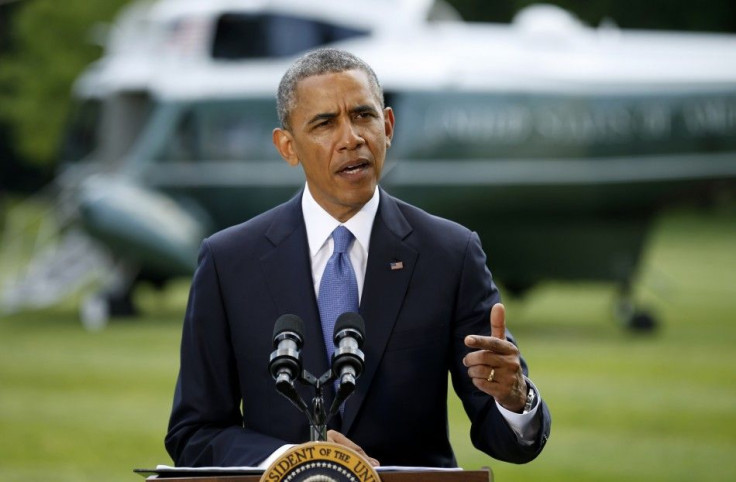Iraq Crisis: Obama Sends 275 Armed Forces Personnel; Aussie Elite Forces on Alert

American President Barack Obama has sent 275 armed forces personnel to Iraq to provide support and security for the U.S. personnel and the U.S. embassy in Baghdad.
According to Obama's letter to the speaker of the House of Representatives, the personnel will be deployed with the objective of protecting U.S. citizens and their properties in the country currently being under threat by Islamist militants.
The Armed Forces to be deployed will also be equipped for combat if the need arises and will stay in Iraq until the security situation becomes stable.
"This action has been directed consistent with my responsibilityto protect U.S. citizens both at home and abroad, and infurtherance of U.S. national secuirty and foreign policyinterests, pursuant to my constitutional authority to conduct U.S. foreign relations and as Commander in Chief and Chief Executive. I am providing this report as part of my efforts to keep the Congress fully informed, consistent with the War PowersResolution (Public Law 93-148). I appreciate the support ofthe Congress in these actions," Obama wrote.
SAS soldiers, Australia's elite forces, are on alert and will be deployed in Baghdad anytime as threat to Australia's diplomats worsen, according to an exclusive report from Fairfax Media.
Evacuation of employees from the Australian embassy in Baghdad had started. But key diplomatic staff were instructed to stay. Sen. David Johnston said there is no plan yet to evacuate key diplomatic officials as Baghdad seemed to be far from the areas where militants were spreading violence.
''There may not be a requirement to evacuate anybody. The last information I have is that Baghdad is secure but we are watching very, very closely and making contingency plans," Johnston added.
The senator noted Australia will ''let the dust settle for a few days'' to come up with the most strategic defense against the Islamic State in Iraq and the Levant (ISIL).
''We'll see the response in the next few days," he said.
But an unnamed defense source told Fairfax Media SAS was placed on alert as it was ''prudent to plan for the worst-case scenario.''
Australia is also ready to fly P-3 Orion surveillance plane taking the lead from the U.S. if the latter decided to fight back the militants in Iraq. According to Fairfax, P-3 Orions are Australia's chief maritime surveillance that can also be used on land.
Australia will consider other options following requests from Washington.
Former Chief of Army Peter Leahy, now director of the National Security Institute at the University of Canberra, commented P-3 Orions are the best aircrafts to survey on ISIL.
''The P-3s we've been using them over land in Afghanistan and over Iraq for the last decade and they're quite useful ... for observing the movements of troops,'' Leahy said.





















